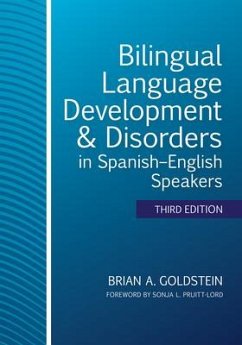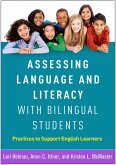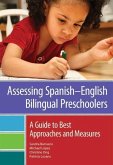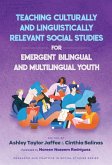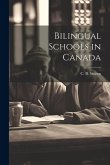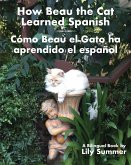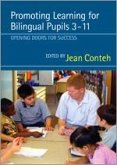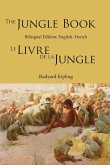Bilingual Language Development & Disorders in Spanish-English Speakers
Herausgeber: Goldstein, Brian A
Bilingual Language Development & Disorders in Spanish-English Speakers
Herausgeber: Goldstein, Brian A
- Broschiertes Buch
- Merkliste
- Auf die Merkliste
- Bewerten Bewerten
- Teilen
- Produkt teilen
- Produkterinnerung
- Produkterinnerung
"This fully revised, comprehensive graduate-level text and reference offers the most current information on language development and disorders of Spanish-English bilingual children"--
Andere Kunden interessierten sich auch für
![Assessing Language and Literacy with Bilingual Students Assessing Language and Literacy with Bilingual Students]() Lori HelmanAssessing Language and Literacy with Bilingual Students40,99 €
Lori HelmanAssessing Language and Literacy with Bilingual Students40,99 €![Assessing Spanishñenglish Bilingual Preschoolers Assessing Spanishñenglish Bilingual Preschoolers]() Sandra BarruecoAssessing Spanishñenglish Bilingual Preschoolers46,99 €
Sandra BarruecoAssessing Spanishñenglish Bilingual Preschoolers46,99 €![Teaching Culturally and Linguistically Relevant Social Studies for Emergent Bilingual and Multilingual Youth Teaching Culturally and Linguistically Relevant Social Studies for Emergent Bilingual and Multilingual Youth]() Teaching Culturally and Linguistically Relevant Social Studies for Emergent Bilingual and Multilingual Youth58,99 €
Teaching Culturally and Linguistically Relevant Social Studies for Emergent Bilingual and Multilingual Youth58,99 €![Bilingual Schools in Canada Bilingual Schools in Canada]() C. B. (Charles Bruce) SissonsBilingual Schools in Canada23,99 €
C. B. (Charles Bruce) SissonsBilingual Schools in Canada23,99 €![How Beau the Cat Learned Spanish / Cómo Beau el Gato ha aprendido el español How Beau the Cat Learned Spanish / Cómo Beau el Gato ha aprendido el español]() Lily SumerHow Beau the Cat Learned Spanish / Cómo Beau el Gato ha aprendido el español16,99 €
Lily SumerHow Beau the Cat Learned Spanish / Cómo Beau el Gato ha aprendido el español16,99 €![Promoting Learning for Bilingual Pupils 3-11 Promoting Learning for Bilingual Pupils 3-11]() J ContehPromoting Learning for Bilingual Pupils 3-1162,99 €
J ContehPromoting Learning for Bilingual Pupils 3-1162,99 €![The Jungle Book The Jungle Book]() Rudyard KiplingThe Jungle Book20,99 €
Rudyard KiplingThe Jungle Book20,99 €-
-
-
"This fully revised, comprehensive graduate-level text and reference offers the most current information on language development and disorders of Spanish-English bilingual children"--
Hinweis: Dieser Artikel kann nur an eine deutsche Lieferadresse ausgeliefert werden.
Hinweis: Dieser Artikel kann nur an eine deutsche Lieferadresse ausgeliefert werden.
Produktdetails
- Produktdetails
- Verlag: Brookes Publishing Company
- 3rd Third Edition, New edition
- Seitenzahl: 456
- Erscheinungstermin: 11. März 2022
- Englisch
- Abmessung: 252mm x 176mm x 24mm
- Gewicht: 776g
- ISBN-13: 9781681253992
- ISBN-10: 1681253992
- Artikelnr.: 62568156
- Herstellerkennzeichnung
- Libri GmbH
- Europaallee 1
- 36244 Bad Hersfeld
- gpsr@libri.de
- Verlag: Brookes Publishing Company
- 3rd Third Edition, New edition
- Seitenzahl: 456
- Erscheinungstermin: 11. März 2022
- Englisch
- Abmessung: 252mm x 176mm x 24mm
- Gewicht: 776g
- ISBN-13: 9781681253992
- ISBN-10: 1681253992
- Artikelnr.: 62568156
- Herstellerkennzeichnung
- Libri GmbH
- Europaallee 1
- 36244 Bad Hersfeld
- gpsr@libri.de
Megan Dunn Davison, Ph.D., 's research has focused on the contributions of early language development to later reading outcomes in diverse preschool children and school-age children with language-based learning disabilities. Her current research focus is on community-based program evaluation spanning from early childhood to workforce development to achieve data-informed policy change. Kelly Escobar, Ph.D., is a Latine scholar and developmental psychologist. Her research has focused on the cultural and contextual factors that shape young Latine children's dual language development. She has also worked to develop and implement several interventions targeted dual language learners across New York City. She received her Ph.D. in Applied Developmental Psychology from New York University. Christine E. Fiestas, Ph.D., is an associate professor in the graduate Speech- Pathology program at St. Augustine University for Health Sciences-Austin campus. Her clinical specialty areas are in the assessment and treatment of developmental language disorders from birth through school ages as well as the assessment of reading and fluency disorders. Her lines of research include the assessment and treatment of language and literacy disorders for individuals who are bilingual, multilingual and speakers of dialects which are not mainstream English. These lines of inquiry include development of language assessment instruments for diagnosis, screening and progress monitoring measures for diverse children including children who are bilingual as well as intervention research to support both languages of bilingual children with language and literacy disorders. Brian A. Goldstein, Ph.D., CCC-SLP, s the Chief Academic Officer and Executive Dean at the University of St. Augustine for Health Sciences, San Marcos, CA. Dr. Goldstein is well-published in the area of communication development and disorders in Latino children focusing on speech sound development and disorders in monolingual Spanish and Spanish-English bilingual children. He is the former editor of Language, Speech and Hearing Services in Schools, is a Fellow of the American Speech-Language-Hearing Association (ASHA), and received the Certificate of Recognition for Special Contribution in Multicultural Affairs from ASHA. Raquel T. Anderson, Ph.D., is professor at the Department of Speech and Hearing Sciences at Indiana University, Bloomington Campus. She teaches and conducts research in the area of child language development and disorders in both monolingual and bilingual populations, with a particular focus on Spanish, and Spanish-English speakers. She directs the masterâ (TM)s level bilingual track program, STEPS, in the department. Lisa M. Bedore, Ph.D., studies language development and disorders in Spanish-English bilinguals. Work on typical bilingual language acquisition provides a foundation for her work focusing on identification of clinical markers to accurately identify children with language impairment and to identify targets for language intervention. Her work was been funded by the National Institute of Deafness and Other Communication Disorders. Nan Bernstein-Ratner, Ed.D., is a Board-Certified Specialist in child language and language disorders, American Speech-Language-Hearing Association Honors recipient, and Fellow of the American Association for the Advance¬ment of Science. Her primary areas of funded and published research focus on interactions between fluency and language development/disorder, and the role of adult input/interaction in child communication development. With the late Oliver Bloodstein, she is coauthor of A Handbook on Stuttering; with Jean Berko Gleason, she has coauthored the texts Psycholinguistics and The Development of Language. She co-directs the FluencyBank and other TalkBank initiatives (www.fluencybank.talkbank.org) with Brian MacWhinney. Karin M. Boerger, Ph.D., earned her M.S. from Rush University, and after working several years as a bilingual speech-language pathologist, she returned for her doctorate from the University of Texas at Austin. She is passionate about guiding graduate students through differential diagnoses of language differences and disorders and working with pre-school aged, emergent English speakers. María R. Brea, Ph.D., CCC-SLP, research investigated interactions between Spanish-specific phonotactic patterns and nonword repetition performance in emerging bilingual children. More recent research collaborations have focused on discourse coherence and syntactic complexity in children with dyslexia, dysgraphia, and oral-written language learning disabilities. Additional areas of interest include the impact of strategic writing instructional approaches on childrenâ (TM)s expository text composition and the influence of multicultural funds of knowledge on family literacy practices. Courtney Byrd, Ph.D., CCC-SLP, is a Full Professor, Associate Chair, and Graduate Advisor in the Department of Speech, Language and Hearing Sciences at The University of Texas at Austin, where she also serves as Founding and Executive Director of The Arthur M. Blank Center for Stuttering Education and Research, which has three core branches each of which she also founded and directs, including the Michael and Tami Lang Stuttering Institute, the Dealey Family Foundation Stuttering Clinic, and the Dr. Jennifer and Emanuel Bodner Developmental Stuttering Lab. Dr. Byrd also serves as the Vice President for Research for The Stuttering Foundation and has been an active member of the National Stuttering Association since attending her first meeting 25 years ago. She has over 100 peer-reviewed publications, and has dedicated her life's work to advancing understanding of the etiology across culturally and linguistically diverse populations, as well as improving treatment and training practices to better serve people who stutter. Anny Castilla-Earls, Ph.D., is an Associate Professor in the Department of Communication Disorders and Sciences at the University of Houston. Her primary research interests are language development, assessment and disorders in monolingual and bilingual children. Her current research explores approaches to differentiate typically developing bilingual children from bilingual children with language disorders by (a) examining differences between monolingual and bilingual development, and (b) studying the effect of language exposure shifts on bilingual development. Dr. Castilla-Earls' current research is funded by the National Institute of Deafness and Other Communication Disorders. Soloman J. Cooperson, Ph.D., completed his Ph.D. at the University of Texas at Austin. His interests include development and disorders of phonology and morphosyntax. Christina Gildersleeve-Neumann, Ph.D., CCC-SLP, is Professor of Speech and Hearing Sciences at Portland State University where she co-founded the PSU Bilingual Concentration and the Education for SLPs in Ecuador Program. Her research, teaching, and clinical interests focus on typical and atypical speech development in Spanish-English bilingual children. She has published and presented research on these topics for over 20 years. Kai Greene, Ph.D., CCC-SLP, is an Assistant Professor at California State University Dominguez Hills in the College of Education: Department of Special Education. His courses focus on dual language learners, inclusionary practices, atypical development, and communication disorders. After three decades of service in the field of education, his curiosity to better understand how teachers teach and how students learn continues. Carol Scheffner Hammer, Ph.D., is Professor of Communication Sciences and Disorders at Teachers College, Columbia University. Her research addresses three interrelated areas that focus on young childrenâ (TM)s school readiness and academic outcomes. These include: environmental and cultural influences on children's language and literacy development; the development of language assessments; and the development and testing of interventions that promote children's language and literacy development. Dr. Hammer has a particular interest in bilingual children and children from diverse socio-cultural backgrounds. Her work has been continually funded since 2000 by agencies such as the National Institutes of Health and the U.S. Department of Education. Aquiles Iglesias, Ph.D., is a Professor and the Founding Director of the Speech-Language Pathology program at the University of Delaware. Dr. Iglesias' work focuses on language development and assessment of Bilingual (Spanish/English) children. He is the author of the Bilingual/English Spanish Assessment (BESA), Systematic Analysis of Language Transcripts (SALT), the Quick Interactive Language Screener (QUILS), and the Quick Interactive Language Screener: English/Spanish (QUILS: ES). Donna Jackson-Maldonado, Ph.D., is a researcher who has lived in Mexico since her childhood. She is a bilingual specialist in monolingual and bilingual language development in children with different language disorders and those who are typically developing. She has developed several language assessment instruments, including the MacArthur-Bates Communicative Development Inventories. Ellen Stubbe Kester, Ph.D., CCC-SLP, founded Bilinguistics to meet the speech and language needs of children from diverse backgrounds. She provides workshops around the United States and beyond on bilingualism, assessment of bilingual students, and effective intervention practices with diverse populations. Her research and clinical work address the important issue of differentiating bilingual children with typical development from those with language impairment, and identifying appropriate goals for intervention with bilinguals. Lisa M. López, Ph.D., is Associate Professor of Educational Psychology at the University of South Florida, Tampa. Dr. López earned her Ph.D. in applied developmental psychology from the University of Miami and completed a National Science Foundation‐funded postdoctoral fellowship in language and literacy at the Harvard Graduate School of Education. She serves as Chair of the Society for Research in Child Development Latinx Caucus (2019-2021). Her research agenda involves understanding and improving upon the educational and environmental opportunities of Latino dual language learner (DLL) children in the United States. Her main research objective is to identify the developmental trajectory of school readiness skills for Latino DLL children while applying an ecological perspective to better understand this developmental trajectory. Her research has been funded by the Eunice Kennedy Shriver National Institute of Child Health and Human Development (NICHD), the Institute of Education Sciences (IES), and the Administration for Children and Families (ACF) and published in journals focused on both education and developmental psychology. Dr. López has won numerous awards for her scholarly and community work with the Latino DLL population. Dr. MÃ(c)ndez' research focuses on early child language and literacy development and the role of language in supporting school readiness, including early science, math and literacy, in culturally and linguistically diverse preschoolers. Several of her publications investigate language intervention approaches for preschoolers who are dual language learners. She has extensive experience as a Bilingual Speech-Language Pathologist in acute care, educational and family-based settings. Her research has been funded through the American Speech and Language Association, the National Institutes of Health, and the National Science Foundation. Johanne Paradis, Ph.D., is Professor in the Department of Linguistics and Adjunct Professor in Communication Sciences and Disorders at the University of Alberta. Her research is concerned with bilingualism in children with typical development and in children with developmental disorders, in particular children learning English as a second language from immigrant and refugee families. Dr. Paradis has published more than 60 peer-reviewed journal articles and chapters on dual language development in children and is the recipient of a Health Scholar Award from the Alberta Heritage Foundation for Medical Research and the National Achievement Award from the Canadian Linguistic Association. She is actively involved in knowledge mobilization and professional development activities with clinicians and educators working with dual language children. Dr. Paradis is the editor of Journal of Child Language. Janet L. Patterson, Ph.D., recently retired from the University of New Mexico, where she taught courses in child language and conducted research for many years on bilingual acquisition with a focus on applications to early identification of language impairment. She and Dr. Barbara Rodriguez collaborated on many projects, including editing a book, Multilingual Perspectives on Language Disorders in Children. Barbara Zurer Pearson, Ph.D., has conducted research for more than 35 years on first and second language acquisition with a special emphasis on young bilingual and bi-dialectal speakers. Her most recent book is Raising a Bilingual Child, published in English by Random House, in Spanish by Bilingual Readers, in Polish by Media Rodzina, and in Mandarin by Beijing Language and Culture University Press. She is a co-author, with Seymour, Roeper, de Villiers & de Villiers of the Diagnostic Evaluation of Language Variation tests from Ventris Learning. Elizabeth Peña, Ph.D., CCC-SLP, is Professor in the School of Education at the University of California, Irvine. Her work focuses on differentiating language impairment from language difference in bilingual children. Her assessment work employs a variety of methods including standardized and dynamic assessment. She is interested in how children from diverse linguistic backgrounds learn new language skills and how they lexicalize their conceptual knowledge across two languages and has published extensively in these areas. She is a Fellow of the American Speech, Language, and Hearing Association. Melissa Pierce, M.S., CCC-SLP is a doctoral student at Arizona State University. Her research interests are using narratives for assessment and intervention with Spanish-English bilingual preschoolers. Her prior clinical experience spans private practice, public schools and early intervention with bilingual children. M. Adelaida Restrepo, Ph.D., is the Assistant Dean for Research and Professor in the College of Health Solutions at Arizona State University. She is the director of the Bilingual Language and Literacy Laboratory, whose main mission is to identify best language assessment and intervention practices for bilingual children at risk of academic difficulties. She is a bilingual speech-language pathologist who has had ongoing funding for at least 16 years in projects building oral language and literacy in preschool, kindergarten and school-age children who speak Spanish as their native language. She is a former associate editor from Language, Speech and Hearing Services in the Schools, and reviews and publishes in a variety of journals in English and Spanish. She is a certified member of the American Speech Language and Hearing Association. She was funded by Fulbright Scholars grant to conduct a project in Israel on response to intervention. Barbara Rodríguez, Ph.D., Professor of Speech and Hearing Sciences and ASHA-certified speech-language pathologist, has worked extensively with bilingual children with language-learning disorders. Her research interests include bilingual language development and the identification of language-learning difficulties in bilingual children. Raúl Rojas, Ph.D., CCC-SLP, is an associate professor at The University of Texas at Dallas, School of Behavioral and Brain Sciences, Callier Center for Communication Disorders. Dr. Rojas's research focuses on child language from a longitudinal and processing perspective, specifically dual language development in typically developing children and in children with language impairments. He is particularly interested in dual language growth and in validating paradigms to index processing load and early language learning in bilingual children. Dr. Rojas, a nationally certified speech-language pathologist, has provided bilingual (Spanish-English) speech-language pathology services in multiple settings including schools and early intervention. Li Sheng, Ph.D., is the director of the Language Learning and Bilingualism Laboratory at the University of Delaware. Her current projects examine how linguistic typology affects vocabulary and grammar development in bilinguals who speak different first languages such as Mandarin and Spanish. She is also interested in the manifestations of language impairment in Mandarin Chinese and the development of assessment tools for the Chinese population. Gabriela Simon-Cereijido, Ph.D., CCC-SLP, is a bilingual speech-language pathologist and a Professor at California State University, Los Angeles. She completed her M.S. in Speech and Language Pathology at Teachers College, Columbia University, and her doctoral degree in Language and Communication Disorders at San Diego State University/University of California, San Diego. Her research has focused on the development of assessment tools and intervention approaches for bilingual Spanish-English children with developmental language disorders. Julie Smith received her M.S. in Speech and Language Pathology with a Bilingual Extension from Teachers College. Under the mentorship of Prof. Carol Scheffner-Hammer, her doctoral research interests include language and literacy development in preschool-aged Spanish-English dual language learners and the cultural and environmental influences on these developmental processes. Julie is also interested in the classroom- and home-based practices that facilitate development in this population. Adriana Soto-Corominas, Ph.D., is a postdoctoral fellow in the Department of Linguistics at the University of Alberta. Her research focuses mainly on bilingual acquisition in childhood, with an emphasis on children who acquire Spanish or English as a second language. Megha Sundara, Ph.D., is the Director of the Language Acquisition Lab at UCLA. She investigates language acquisition in monolingual and bilingual infants. Her recent research is focused on how and when pre-verbal infants learn morphology and phonology.

